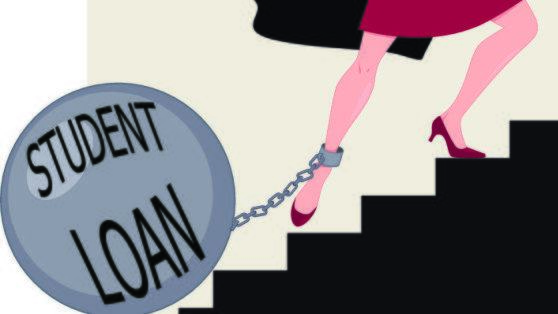Sixty percent of non-homeowning millennials say student loan debt is delaying their ability to buy a home, by far the most affected population, according to a new poll released today by the National Association of Realtors®.
The findings also show that Americans burdened with high student debt see the impact on their daily lives. They often must choose between investing in their retirement, purchasing a home, getting married, starting a family, or general savings.
NAR partnered with Morning Consult on the report The Impact of Student Loan Debt.*
“Housing affordability is worsening, leaving future home buyers with student debt at a severe disadvantage,” said NAR President Charlie Oppler, a Realtor® from Franklin Lakes, N.J., and the CEO of Prominent Properties Sotheby’s International. “Younger Americans shouldn’t have to choose between education and homeownership, and NAR continues to pursue policies that ensure the American dream remains available and accessible for those still paying off their college education.”
The new research also uncovers that only 23% of student loan debtholders understood the costs of attending college before taking out loans. Moreover, 35% of those student loan debt holders did not fully understand their potential for earnings following graduation.
According to the report, 51% of all student loan holders say their debt delayed them from purchasing a home. Thirty-six percent of student loan debtholders say student loan debt delayed their decision to move out of a family member’s home, a percentage that rises to 52% among Black debtholders. Ultimately, the report shows that 31% of millennials and 28% of Black student debtholders would use their additional funds to purchase a home in the future with no student loan debt.
“Aside from just purchasing a home, this report finds that more than half of those with student loan debt have delayed some form of major life choice,” Oppler continued. “Student loan debt isn’t just seeping into housing affordability. It’s also plaguing other aspects of people’s lives.”
To address the growing debt burden, NAR supports a multipronged approach. Financial education should be expanded to aid students as they face decisions about financing their education, while aid programs should be simplified. For those who hold debt, opportunities to consolidate and refinance debt at lower rates will help debtholders lower monthly debt payments, make large purchases, and make wise life choices. Finally, NAR favors expanding tax preferences for employers who assist employees with their student debt as well as tax forgiveness for debtholders who have their debt forgiven or paid off by their employer.
NAR has been collecting and examining research during the past eight years to gauge the impact of student loan debt on future homebuyers. The data pattern now affirms that student loan debt is one of the most significant barriers standing between a potential buyer and the ability to purchase a home.
Today’s new findings build on last year’s annual survey of successful homebuyers, Profile of Home Buyers and Sellers, which showed that student loan debt was the most significant factor delaying their ability to save among buyers who had difficulty saving for a down payment. This research found Black homebuyers were more than twice as likely to have student debt than White homebuyers, with a median amount of $10,000 more than White buyers.
The Impact of Student Loan Debt poll was modeled off NAR reports from 2016 and 2017, with a narrower scope. The research themes are comparable, but the newest report considers the current federal government stimulus package and how the COVID-19 pandemic has affected debt in our country.
The National Association of Realtors® is America’s largest trade association, representing more than 1.5 million members involved in all aspects of the residential and commercial real estate industries.
* This poll was conducted by Morning Consult, on behalf of the National Association of REALTORS®, between June 10–16, 2021, among a sample of 1,995 student loan debtholders. The interviews were conducted online. Results from the full survey have a margin of error of +/- 2 percentage points.
Copyright NATIONAL ASSOCIATION OF REALTORS®. Reprinted with permission

